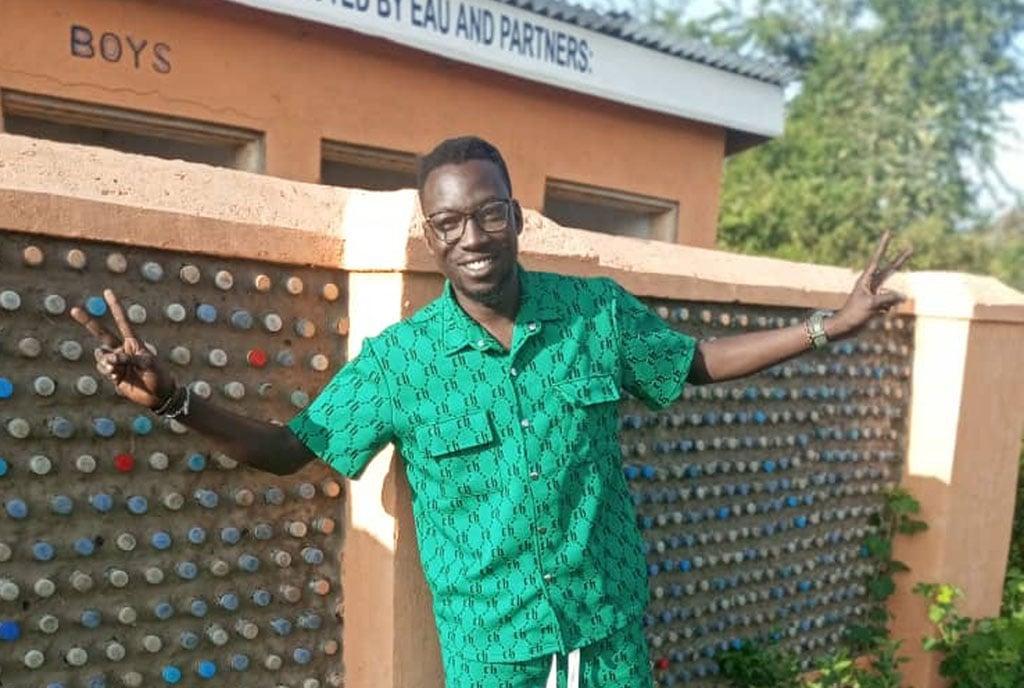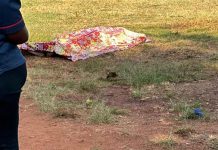Africa-Press – Zimbabwe. Abel Odeke, 30, from Aligoi Sub-county in Bukedea District, is standing among Uganda’s heroes who have put up a fight against plastic pollution in their communities.
With his friends, Odeke conceived an idea of using plastic bottles to build water tanks and latrines, a project which he thought would not only solve the problem of plastic pollution, but also improve sanitation and provide clean water to the community.
Odeke’s idea was informed by an interaction with residents in rural communities of Hoima, Mbale, Bukedea and Kayunga districts, where he noticed a lack of enough clean water given the fact that some women and girls used to walk several kilometres in search of clean water.
“We became aware of the problem of water shortage in rural areas. The water sources were very far from people’s homes and we decided to intervene,” Odeke says.
Initiative
He started Equal Aqua Uganda, a community-based organisation, aimed at providing access to clean water and sanitation, based in Bukedea District.
In 2020, Odeke identified plastic collection points in Doko, Mbale (This is a place where, plastic bottles in Mbale City are dumped). Then, a kilo of plastic bottles cost Shs600 but today, it is at Shs1,000.
To build a 10,000litre water tank, Odeke needed 100 kilos of plastic bottles, which cost around Shs 100,000.
So far, 20 rainwater catchment tanks have been constructed with a total holding capacity of more than 200,000 litres of water and 10 stances of pit latrines have been constructed in different schools, health centres, and churches in various districts, including Sironko, Bukedea, Mbale, Tororo, Kumi, and Mayuge.
“Many people now collect these bottles for money and it has improved many livelihoods of families and street children who depend on this for daily income,” Odeke says.
He adds that the community now keeps plastic and sells it to recycling companies.
“The community has also realised that with these available resources construction is easier and affordable and above all long lasting because our water tanks have a lifespan of more thans 50 years,” he adds.
Star shines
Odeke was awarded the 157th Commonwealth Point of Light in honour of his exceptional voluntary service promoting water equality in 2020 by Queen Elizabeth.
Odeke won a grant of over Shs30m to support the latrine and water tank construction project for schools with special needs and other government schools. This cannot be without challenges.
Odeke says Covid-19 outbreak affected them so much since most of their potential donors closed down, hence funding is still low and so this has lowered their progress.
In addition, he said transport is also one of the biggest problems as much of their work is focusing on the rural villages of Uganda, which are mostly remote and hard to reach.
He further adds that the rising prices of goods are still affecting them for example, a bag of cement which they used to buy at Shs28,000, is now at Shs32,000.
Future plans
Odeke says he intends to extend the project to other parts of the country, especially in northern Uganda and Karamoja sub-regions.
He also plans to start manufacturing their own water filters to save costs because many families still lack access to clean water.
Every year, Uganda celebrates world environment day and this year, the day was celebrated on June 5 under the theme “stop plastic pollution, restore the environment.”
Odeke says there is still a huge gap of creating awareness to the public about plastic pollution. He urges the government to partner with organisations so that they can help to raise their voices, especially in hard to reach communities.
“I also want to request them to assign us proper working guidelines to support our work in communities by ensuring there is tax exemption for such community based organisations. This will help us to ship in a lot of machinery because climate change is so real,” he adds.
The situation
According to the United Nations Environment programme (UNEP), plastic pollution is a global problem. Approximately seven billion tonnes of plastics end up in landfill or dumps.
Plastic pollution can alter habitats and natural processes, reducing eco systems’ ability to adapt to climate change, directly affecting livelihoods.
For More News And Analysis About Zimbabwe Follow Africa-Press






